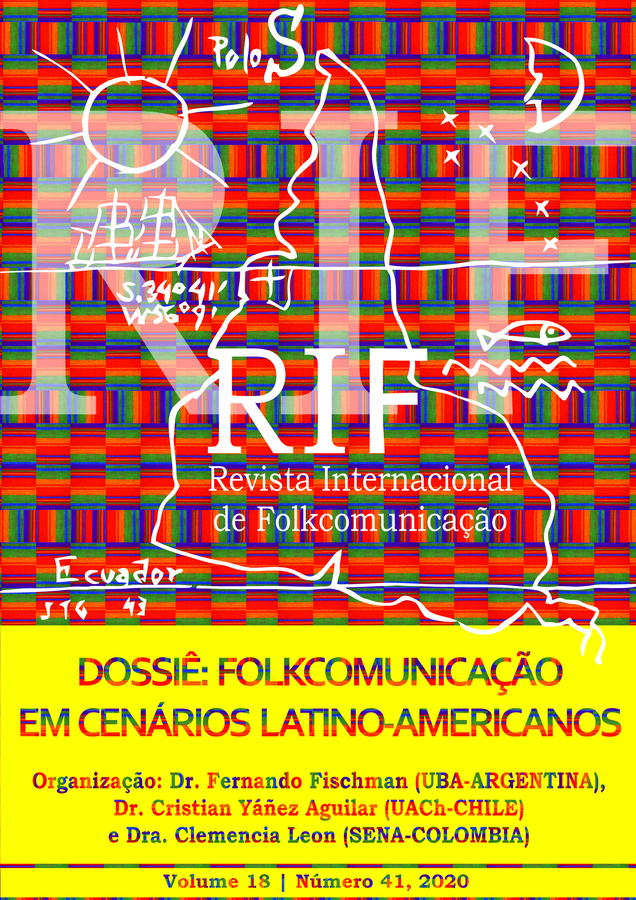Agentes folkcomunicacionales y memoria colectiva: organizando el territorio desde la experiencia popular
DOI:
https://doi.org/10.5212/RIF.v.18.i41.0005Resumo
Nosso artigo é parte de uma pesquisa em andamento que ocorre na região de Los Ríos, sul do Chile, onde ex-moradores buscam recuperar territórios do Complexo Florestal e Madeireiro de Panguipulli (COFOMAP) de onde foram deslocados à força durante a ditadura militar (1973-1989). O objetivo é analisar as práticas de comunicação popular de agentes que dão sentido à apropriação do espaço da cultura popular, que emerge na memória coletiva e fortalece a organização, dimensão que foi identificada a partir do trabalho de campo que incluiu entrevistas grupais e observação participante. Assim, articula-se uma narrativa resistente à expropriação corporativa e ao vívido terrorismo de Estado, conferindo inteligibilidade à luta atual e às demandas por justiça. Memória coletiva; Terrorismo de Estado; Práticas folkcomunicacionais; Deslocamento forçado.
Downloads
Arquivos adicionais
Publicado
Como Citar
Edição
Seção
Licença

Este obra está licenciado com uma Licença Creative Commons Atribuição 4.0 Internacional.
Os autores são responsáveis, em qualquer que seja o formato do texto, pelas opiniões expressas ou indiretas presentes em seus respectivos trabalhos, não endossáveis pelo Conselho Editorial e pelos editores da Revista, bem como pela autenticidade do trabalho. Ao publicar trabalhos na Revista Internacional de Folkcomunicação, os autores cedem automaticamente os direitos autorais à publicação para veiculação das produções acadêmicas, sem ônus para a Revista. Os autores detêm os direitos autorais do texto para o caso de publicações posteriores e concedem à Revista Internacional de Folkcomunicação o direito de primeira publicação, com o trabalho simultaneamente licenciado sob a Creative Commons Attribution License, que permite o compartilhamento do trabalho com reconhecimento da autoria e publicação inicial nesta Revista. Por serem publicados em revista de acesso livre, os artigos são de uso gratuito, com atribuições próprias, em atividades educacionais e não-comerciais, sendo permitida a publicação simultânea em repositórios institucionais.































